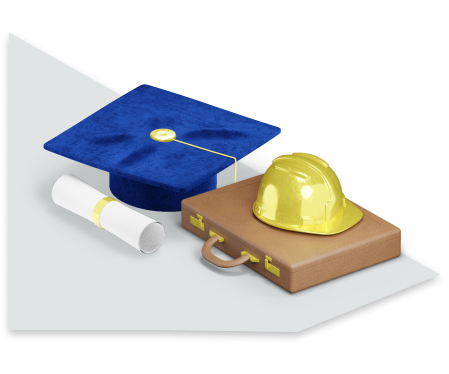Canadian Business and Investor Immigration
Canadian Business Immigration offers several immigration programs for international entrepreneurs, investors, start-up companies and self-employed individuals who want to immigrate to Canada. These immigration programs allow applicants to gain permanent residency in Canada.
Applicants must meet the determining eligibility requirements for their specific stream to qualify. Generally, business immigration programs have requirements for personal net worth, business investment, business ownership and experience, language proficiency, etc.
Provincial Nominee Program (PNP)
Provincial Nominee Programs are unique to every province and territory in Canada. PNPs give each provincial and territorial government the choice to nominate foreign skilled workers with various skills and experiences that are relevant contributors for the betterment of their current labor market needs and economies.
Applicants must currently be residing in Canada and have a valid job offer from a designated employer that is operating within the particular province or territory that they want to immigrate to. However, there are many streams within PNPs that don’t have this job offer requirement.
Out of the 10 provinces and 3 territories, only Nunavut, which is Canada’s newest territory currently does not have a PNP. Quebec offers its own immigration programs.
Express Entry and Provincial Nominee Programs (PNPs)
Different PNPs offer several Express Entry aligned immigration streams known as “Enhanced” PNP streams or Express Entry linked PNPs. These streams help the province to nominate candidates from the federal Express Entry pool with the skills and experience that are relevant to their current labor market needs.
Applicants must be eligible for 1 of the 3 federal economic immigration programs. You do not necessarily require a valid job offer for all Express Entry aligned PNP streams.
Quebec Immigration
Quebec has the autonomy to select immigration applicants to protect their distinct identity. Quebec Immigration programs have a 2 step process. While French proficiency adds value to your application, it is not mandatory.
Quebec selects applicants based on their skills, experiences and human capital value. If you want to immigrate to Quebec, you can apply for 1 of the several immigration streams offered under the Quebec Immigration.
As a professional caregiver, you can apply for permanent residency under the Home Child Care program and the Home Support Worker Program.
These new caregiver pilot programs are employer-specific. Caregivers are now allowed to change employers when necessary and add accompanying spouses, dependent children or parents and grandparents to their application.
Humanitarian Compassionate Grounds (H&C)
Canada could grant you permanent residency based on Humanitarian and Compassionate Grounds if you have minor children who will be in danger or dependants with a severe medical condition that can not be treated if they had to return to your home country.
Permanent Resident Card
A permanent resident card (also referred to as a PR card) is proof of status for permanent residents who are traveling outside Canada. It is valid for 5 years. You will require a PR card if you are returning to Canada.
Canadian Citizenship
Canadian Citizenship is the last and ultimate step in Canadian Immigration. Permanent residents can qualify to apply for Canadian Citizenship if they meet certain specified requirements.
Permanent residents must be physically present in Canada for at least 3 years (1,095 days) in the last 5 years.
Applicants will be required to pass a citizenship test and attend an interview with the government body of Immigration, Refugees and Citizenship Canada (IRCC) if requested. If your application is successful, you will be required to take the Oath of Citizenship at a Citizenship Ceremony.
Atlantic Immigration Pilot Program (AIPP)
The Atlantic Immigration Pilot Program (AIPP) is a special immigration program for the Atlantic provinces of Canada. The AIPP encourages economic immigration of skilled and semi-skilled workers and international graduates who will fill the labor market gaps.
Rural and Northern Immigration Pilot
Rural and Northern Immigration Pilot: The Rural and Northern Immigration Pilot is specially designed to encourage economic immigration to the rural and northern communities of Canada.
Currently, 11 communities across 5 provinces from the west coast of British Columbia, throughout the Prairie Provinces of Alberta, Saskatchewan and Manitoba and bookended by Ontario are participating in this pilot program.
Although not part of these province’s PNP, this pilot is another option for immigrating to these provinces.
You will require a valid job offer and a recommendation from the community within the province that you want to reside in to apply for permanent residency through this program.
Agri-Food Immigration Pilot
The Agri-Food Immigration Pilot is an industry-specific pilot that encourages economic immigration of high-skilled and semi-skilled foreign temporary non-seasonal workers to fill labor shortages within the Agriculture-Food related sector such as the meat processing and mushroom production industries.
Economic Mobility Pathway Pilot (EMPP)
The Economic Mobility Pathway Pilot (EMPP) offers an immigration pathway for up to 10-15 skilled refugees from the Middle East and East Africa who have the ability to meet the eligibility criteria for one of the economic immigration programs offered by the IRCC.









